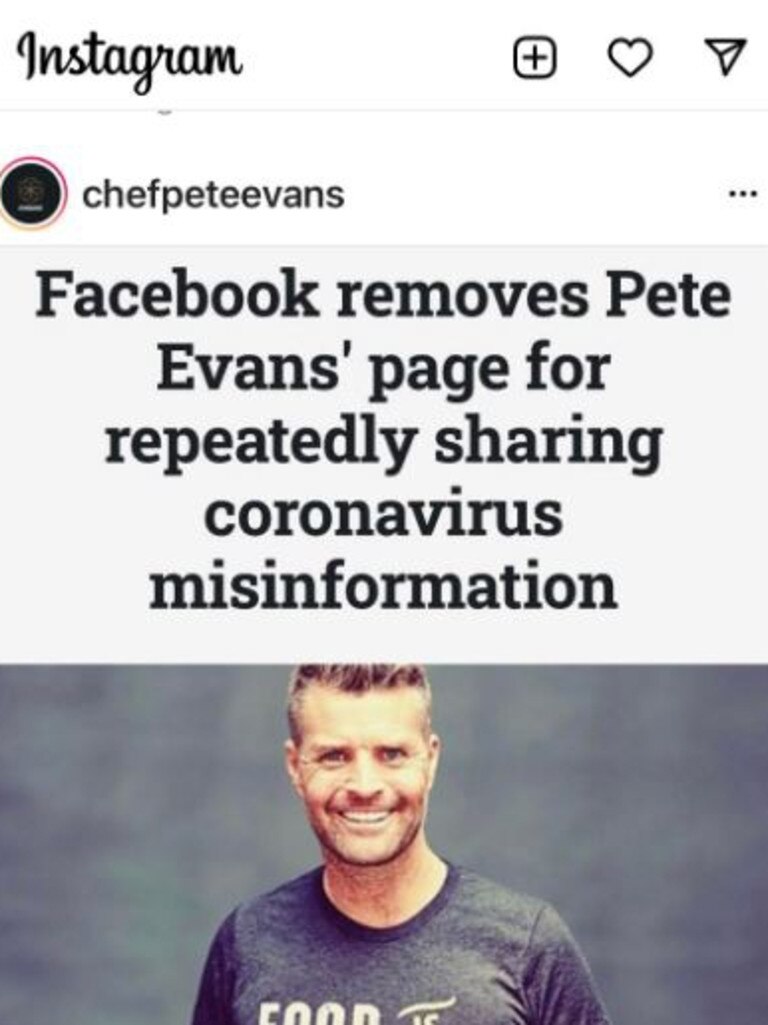COVID-19 vaccines: Online misinformation needs addressing
Coronavirus may be spreading but so is misinformation about the pandemic and vaccines. While Facebook banned chef Pete Evans, other Aussies are concerned about anti-vax “fake news”.
The vast majority of Australians are concerned that anti-vaccine groups spreading misinformation on social media will discourage people from being vaccinated against coronavirus, a new study has found.
Reset Australia, a think tank and affiliate of a global initiative working to counter digital threats to democracy and society, commissioned a YouGov poll to investigate the level of concern among Australians about anti-vax misinformation.
The poll found that 85 per cent agree misleading claims on social media will discourage COVID-19 vaccination uptake and 65 per cent said they would like to see greater transparency from social media platforms about the extent of misinformation so that public health authorities could effectively track and trace anti-vax sentiment.

Chris Cooper, executive director of Reset Australia said social media was a hotbed of misinformation that had grown exponentially during the pandemic.
“We can‘t begin to plan a vaccine rollout without tackling anti-vax misinformation online,” Mr Cooper said.
“Social media has supercharged conspiracy theories and misinformation. There is a growing level of vaccine hesitancy and every study has shown up huge levels of misinformation around the world.”
Misinformation is being amplified on social media because tech giants design algorithms to offer content that keeps people engaged, as opposed to content that is factually correct.
“That tends to be the more sensationist, outrageous and emotional and what we are seeing is that leads toward conspiratorial misinformation,” Mr Cooper said.

Facebook and other social media platforms have cracked down on anti-vaccine content. Facebook moved to delete celebrity chef and anti-vaxxer Pete Evans off its platform on Wednesday but Reset is advocating for a “live list” policy that compels the tech giants to reveal what is going viral and when.
“We don’t have a bird’s eye view of the scale of the problem, only the platforms do, which is why they need to be compelled to list the most shared content about COVID-19,” he said.
“What kind of content is being amplified by these platforms? Who made it? What kind of demographics are consuming it? To do that we need a live list of the most contentious issues our society is facing, so we can begin to tackle misinformation collectively and transparently.
“In the same way we put restrictions on broadcasters and publishers with content, that same kind of regulation can happen with social media platforms but we need to better diagnose the problem and we can only do that with better transparency.”
Influencers regularly share anti-vaccine content that is proven to be wrong, misleading and sensationist while profiting from their social media channels by charging money.
Recent research from the Australian National University found almost three in 10 Australians were hesitant about a COVID-19 vaccine, with 13 per cent either highly hesitant or resistant.
Some of the outrageous fake news spreading on social media include vaccines will turn you into a monkey or alter your DNA.
More Coverage
Originally published as COVID-19 vaccines: Online misinformation needs addressing




